Yusuke Niitani
Team PFDet's Methods for Open Images Challenge 2019
Oct 25, 2019

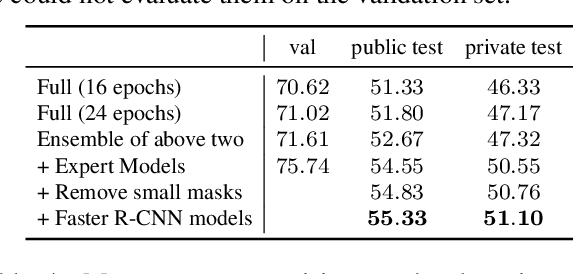

Abstract:We present the instance segmentation and the object detection method used by team PFDet for Open Images Challenge 2019. We tackle a massive dataset size, huge class imbalance and federated annotations. Using this method, the team PFDet achieved 3rd and 4th place in the instance segmentation and the object detection track, respectively.
Chainer: A Deep Learning Framework for Accelerating the Research Cycle
Aug 01, 2019
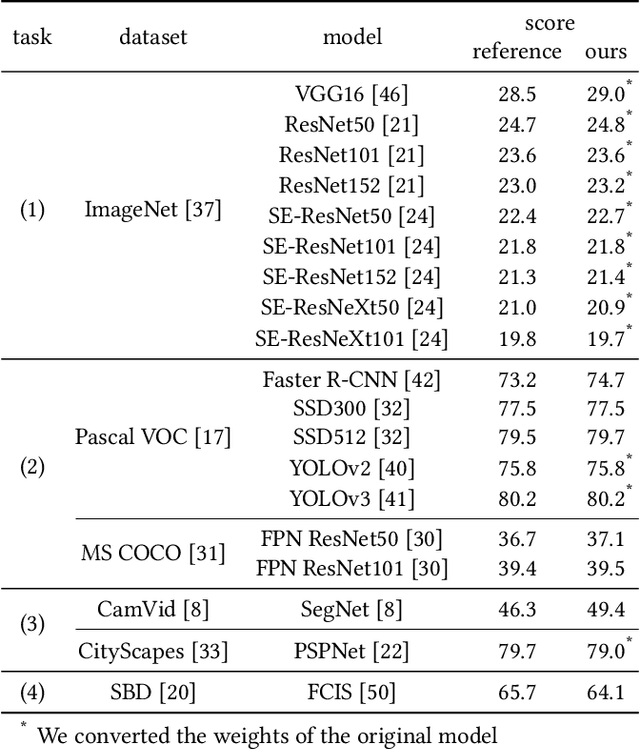
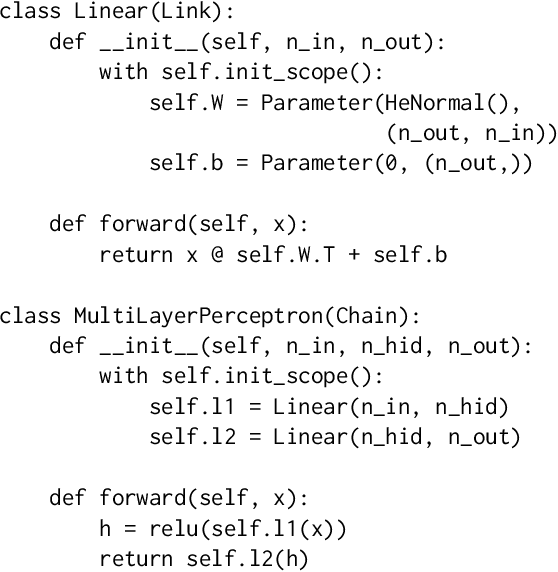

Abstract:Software frameworks for neural networks play a key role in the development and application of deep learning methods. In this paper, we introduce the Chainer framework, which intends to provide a flexible, intuitive, and high performance means of implementing the full range of deep learning models needed by researchers and practitioners. Chainer provides acceleration using Graphics Processing Units with a familiar NumPy-like API through CuPy, supports general and dynamic models in Python through Define-by-Run, and also provides add-on packages for state-of-the-art computer vision models as well as distributed training.
Sampling Techniques for Large-Scale Object Detection from Sparsely Annotated Objects
Nov 27, 2018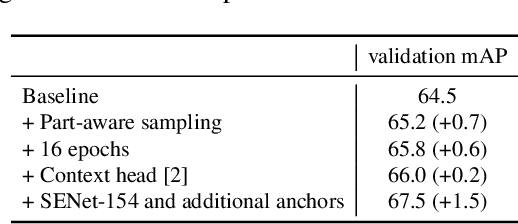
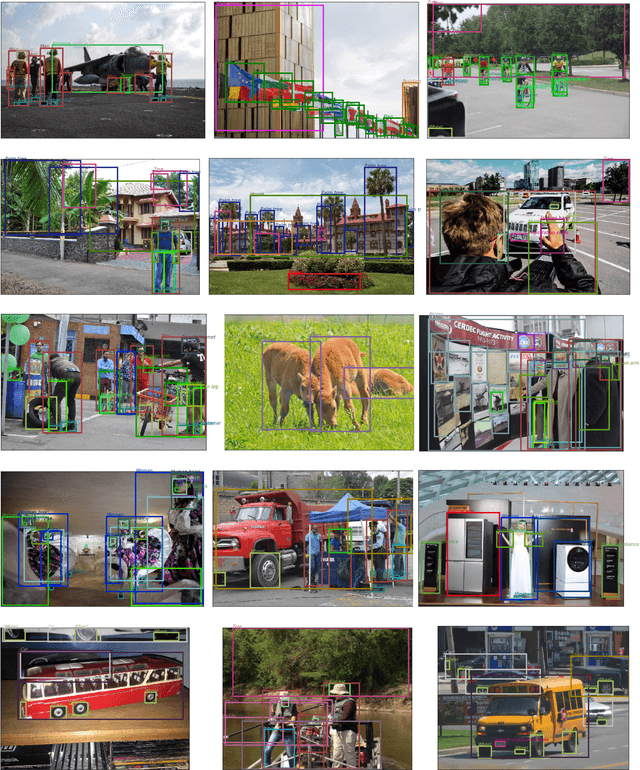

Abstract:Efficient and reliable methods for training of object detectors are in higher demand than ever, and more and more data relevant to the field is becoming available. However, large datasets like Open Images Dataset v4 (OID) are sparsely annotated, and some measure must be taken in order to ensure the training of a reliable detector. In order to take the incompleteness of these datasets into account, one possibility is to use pretrained models to detect the presence of the unverified objects. However, the performance of such a strategy depends largely on the power of the pretrained model. In this study, we propose part-aware sampling, a method that uses human intuition for the hierarchical relation between objects. In terse terms, our method works by making assumptions like "a bounding box for a car should contain a bounding box for a tire". We demonstrate the power of our method on OID and compare the performance against a method based on a pretrained model. Our method also won the first and second place on the public and private test sets of the Google AI Open Images Competition 2018.
PFDet: 2nd Place Solution to Open Images Challenge 2018 Object Detection Track
Sep 04, 2018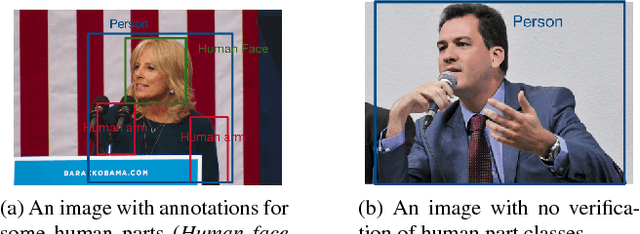
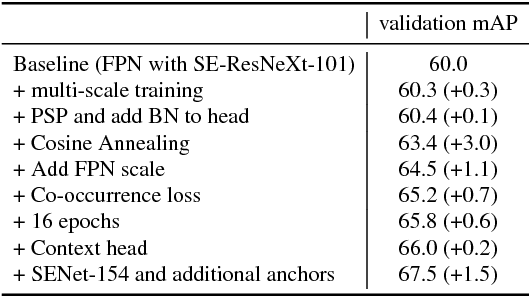
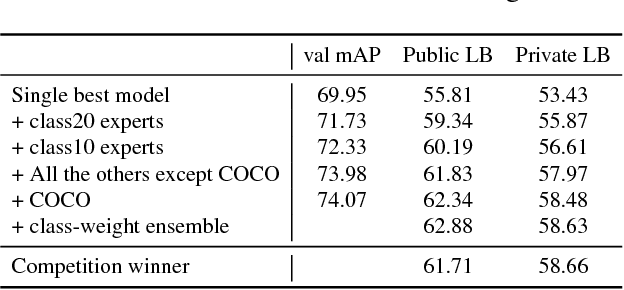

Abstract:We present a large-scale object detection system by team PFDet. Our system enables training with huge datasets using 512 GPUs, handles sparsely verified classes, and massive class imbalance. Using our method, we achieved 2nd place in the Google AI Open Images Object Detection Track 2018 on Kaggle.
ChainerCV: a Library for Deep Learning in Computer Vision
Aug 28, 2017



Abstract:Despite significant progress of deep learning in the field of computer vision, there has not been a software library that covers these methods in a unifying manner. We introduce ChainerCV, a software library that is intended to fill this gap. ChainerCV supports numerous neural network models as well as software components needed to conduct research in computer vision. These implementations emphasize simplicity, flexibility and good software engineering practices. The library is designed to perform on par with the results reported in published papers and its tools can be used as a baseline for future research in computer vision. Our implementation includes sophisticated models like Faster R-CNN and SSD, and covers tasks such as object detection and semantic segmentation.
 Add to Chrome
Add to Chrome Add to Firefox
Add to Firefox Add to Edge
Add to Edge